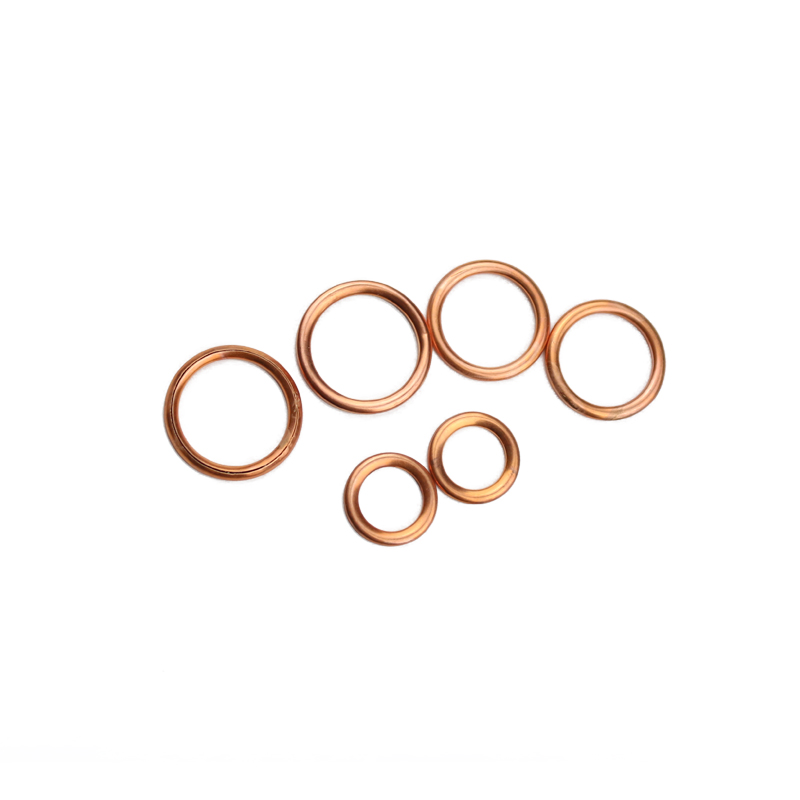rotating shaft seals
Understanding Rotating Shaft Seals Essential Components for Machinery Efficiency
Rotating shaft seals play a crucial role in various mechanical systems, ensuring the efficient operation of machinery and preventing fluid leaks. These seals are designed to keep lubricants in and contaminants out, thereby prolonging the life of equipment and enhancing overall performance. In this article, we will explore the types, functions, and importance of rotating shaft seals in industrial applications.
What are Rotating Shaft Seals?
Rotating shaft seals, often referred to as rotary seals or shaft seals, are devices installed around a rotating shaft to prevent the leakage of fluids—be it lubricants, oils, or other substances—while also keeping dirt, dust, and other contaminants from entering the machinery. They are commonly used in a variety of applications, including automotive engines, pumps, compressors, and various industrial machinery.
Types of Rotating Shaft Seals
There are several types of rotating shaft seals, each designed for specific applications. The most common types include
1. Lip Seals These seals are made of elastomeric materials and feature a flexible lip that makes contact with the rotating shaft. This design allows for effective sealing against the fluid while accommodating shaft movement.
2. Mechanical Seals Typically used in pumps and other applications where high pressures are present, mechanical seals consist of two flat surfaces that are pressed together to create a seal. They can handle higher temperatures and pressures compared to lip seals.
3. Back-to-Back Seals This configuration involves placing two seals back-to-back to create a barrier against fluid leakage. This design is often used in applications where there are opposing pressures, providing extra protection.
4. Radial Shaft Seals These seals are particularly effective in applications where the shaft rotates in a radial motion and are commonly used in automotive drivetrains.
5. Spring-Loaded Seals These seals use a spring mechanism to maintain constant pressure against the shaft, ensuring a tight seal even as the machinery operates at high speeds or under varying thermal conditions.
Functions of Rotating Shaft Seals
rotating shaft seals

The primary functions of rotating shaft seals include
- Fluid Retention Seals prevent lubrication oil or any other fluid from leaking out of the machinery. This is vital for maintaining the correct operating temperatures and preventing wear and tear on moving parts.
- Contaminant Exclusion Seals act as barriers that keep dust, dirt, and other environmental contaminants from entering critical components, which can lead to equipment failure.
- Pressure Maintenance In systems where pressure regulation is essential, seals help in maintaining the necessary pressure levels within the machinery, ensuring optimal operations.
- Increased Equipment Longevity By effectively sealing fluid and contaminants, rotating shaft seals reduce the risk of premature wear, leading to increased lifespan and reliability of machinery.
Importance of Rotating Shaft Seals in Industry
The importance of rotating shaft seals goes beyond just preventing leaks. They are essential in
- Cost Efficiency Leakage of lubricants not only increases operational costs due to the need for top-ups but can also result in unexpected maintenance costs and downtime. Effective seals minimize these expenses.
- Environmental Protection Preventing fluid leaks contributes to environmental conservation efforts. Regulations regarding fluid containment are becoming strict, and effective sealing solutions can aid in compliance.
- Safety In industries where flammable or hazardous fluids are handled, sealing mechanisms are critical in preventing leaks that could lead to dangerous situations, including fires or chemical spills.
Conclusion
In summary, rotating shaft seals are indispensable components in modern machinery, providing essential functions that contribute to efficiency, safety, and cost-effectiveness. With various types tailored to specific applications, they serve a wide range of industries, from automotive and aerospace to manufacturing and energy. Understanding their role and ensuring proper maintenance and selection of seals can significantly impact the performance and longevity of machinery, making them a vital area of focus for engineers and technicians alike. As technology evolves, advancements in seal materials and designs will continue to enhance the effectiveness of rotating shaft seals, paving the way for even more efficient machinery operations in the future.
-
Understanding the Front Main Engine Seal: Purpose, Maintenance, and Installation
News Jul.29,2025
-
Understanding O-Rings and Seal Rings: Types, Applications, and Custom Solutions
News Jul.29,2025
-
Understanding Crankshaft Oil Seals: Rear Seals, Pulley Seals, and Their Role in Engine Integrity
News Jul.29,2025
-
The Importance of Front and Rear Crankshaft Seals in Engine Performance and Oil Management
News Jul.29,2025
-
Crank Oil Seals: Functions, Types, and Cost Considerations in Engine Maintenance
News Jul.29,2025
-
A Comprehensive Guide to O-Rings and Seals: Types, Materials, and Global Applications
News Jul.29,2025
-
Mastering Diesel and Performance Engine Maintenance: A Guide to Critical Oil Gaskets
News Jul.28,2025
Products categories















